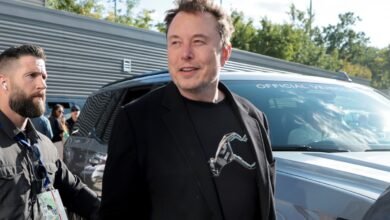Tesla Chair Calls Musk’s $1T Pay Debate ‘Weird’

▼ Summary
– Tesla shareholders will vote in November on a proposed $1 trillion compensation package for CEO Elon Musk.
– Board chair Robyn Denholm defended the plan, stating it motivates Musk with extraordinary challenges tied to compensation.
– Denholm suggested Musk is more interested in the voting power from the shares than the additional wealth.
– She emphasized the package is based on future performance, with Musk receiving nothing if goals are not met.
– The package’s goals are noted as less ambitious than some of Musk’s past promises about Tesla.
Tesla shareholders are preparing for a crucial November vote on a proposed $1 trillion compensation package for CEO Elon Musk, a plan that has drawn both intense scrutiny and staunch defense from the company’s leadership. Board chair Robyn Denholm recently spoke with The New York Times, framing the unprecedented pay deal as essential to motivating Musk through what she describes as extraordinary challenges tied to equally extraordinary rewards.
Denholm, who served on the special committee responsible for drafting the proposal, emphasized that Musk’s primary interest lies not in accumulating additional personal wealth but in gaining greater voting influence within the company. She remarked that focusing solely on the monetary value of the package misses the larger point, describing public fixation on the dollar amount as “a little bit weird.”
The timing of the proposal has raised eyebrows, coming as Tesla faces declining profits and softening vehicle sales. Despite these headwinds, Denholm insists the compensation structure is forward-looking, designed to incentivize future performance rather than reward past achievements. Under the terms of the package, Musk would receive no payout if he fails to meet specific performance milestones.
However, critics have pointed out that the targets outlined in the compensation plan appear less ambitious than some of the bold predictions Musk has made publicly about Tesla’s growth trajectory. This contrast has fueled debate over whether the proposed rewards align with realistic corporate goals or reflect overly optimistic expectations.
(Source: TechCrunch)




